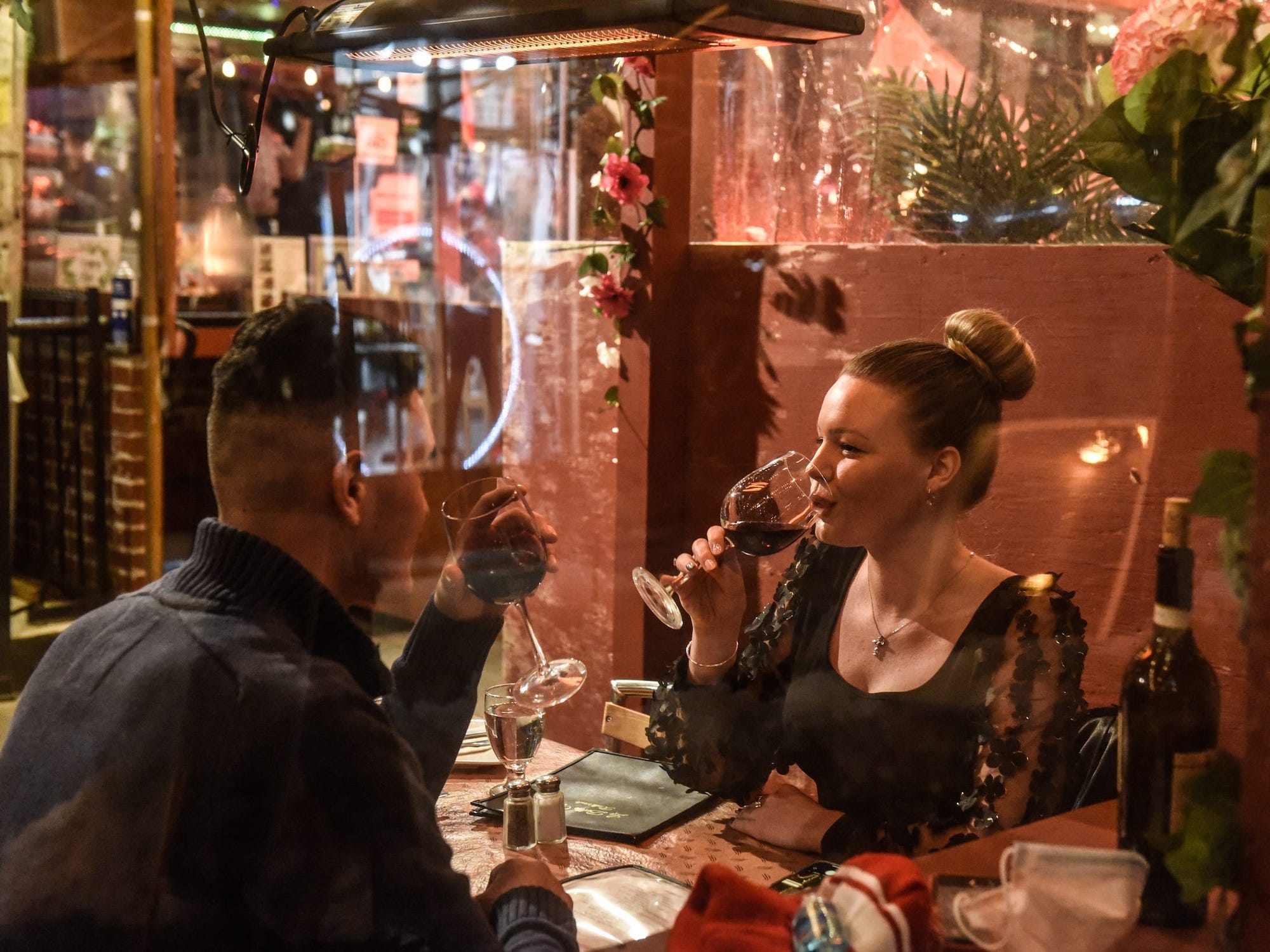
- Indoor dining is permitted in much of the US, but that doesn't mean it's safe.
- Vaccinated people can eat inside restaurants without much personal risk.
- Unvaccinated people are not protected and should avoid indoor dining.
- Visit Insider's homepage for more stories.
In most parts of the US, you can walk into a restaurant and dine indoors. But just because you can doesn't mean that you should.
Dr. Anthony Fauci, the nation's top infectious disease expert, said in late February that even people who have been fully vaccinated against COVID-19 shouldn't dine inside restaurants just yet.
The rate of the new coronavirus cases reported in the US is declining day by day, but the baseline is still "unacceptably high," Fauci said in a White House press briefing. As long as the virus is still circulating and the majority of people aren't yet protected by vaccines, he recommends against anyone congregating indoors.
However, vaccinated folks might be itching to explore their new freedom after their full protection kicks in. If you do feel inclined to dine indoors, here's what you need to know.
Vaccinated people can dine indoors safely, but should keep others in mind
Those who have gotten vaccines can enjoy immunity from getting sick 1-2 weeks after their second dose (or a month after a single Johnson & Johnson shot).
That means vaccinated people can safely dine indoors without taking on too much personal risk. The real concern is how that behavior might affect those who have not yet been vaccinated.
Early evidence shows promise that vaccines may be able to stop people from spreading the coronavirus to others, but until we know for sure, vaccinated people should stay away from unvaccinated folks in indoor settings like restaurants.
Why you shouldn't eat inside a restaurant if you're not yet fully vaccinated
People who are partially vaccinated might feel some sense of protection, but they should assume their immunity hasn't fully kicked in yet. They should take similar precautions to unvaccinated folks, which means not eating inside restaurants at all.
Alex Huffman, an aerosol expert at the University of Denver, told Insider that given the way airborne virus particles can spread indoors - especially with extra transmissible variants in circulation - indoor dining is "the single riskiest activity for our public health."
As the weather gets warmer and many restaurants offer outdoor dining options, eating inside can wait until more people are vaccinated.
